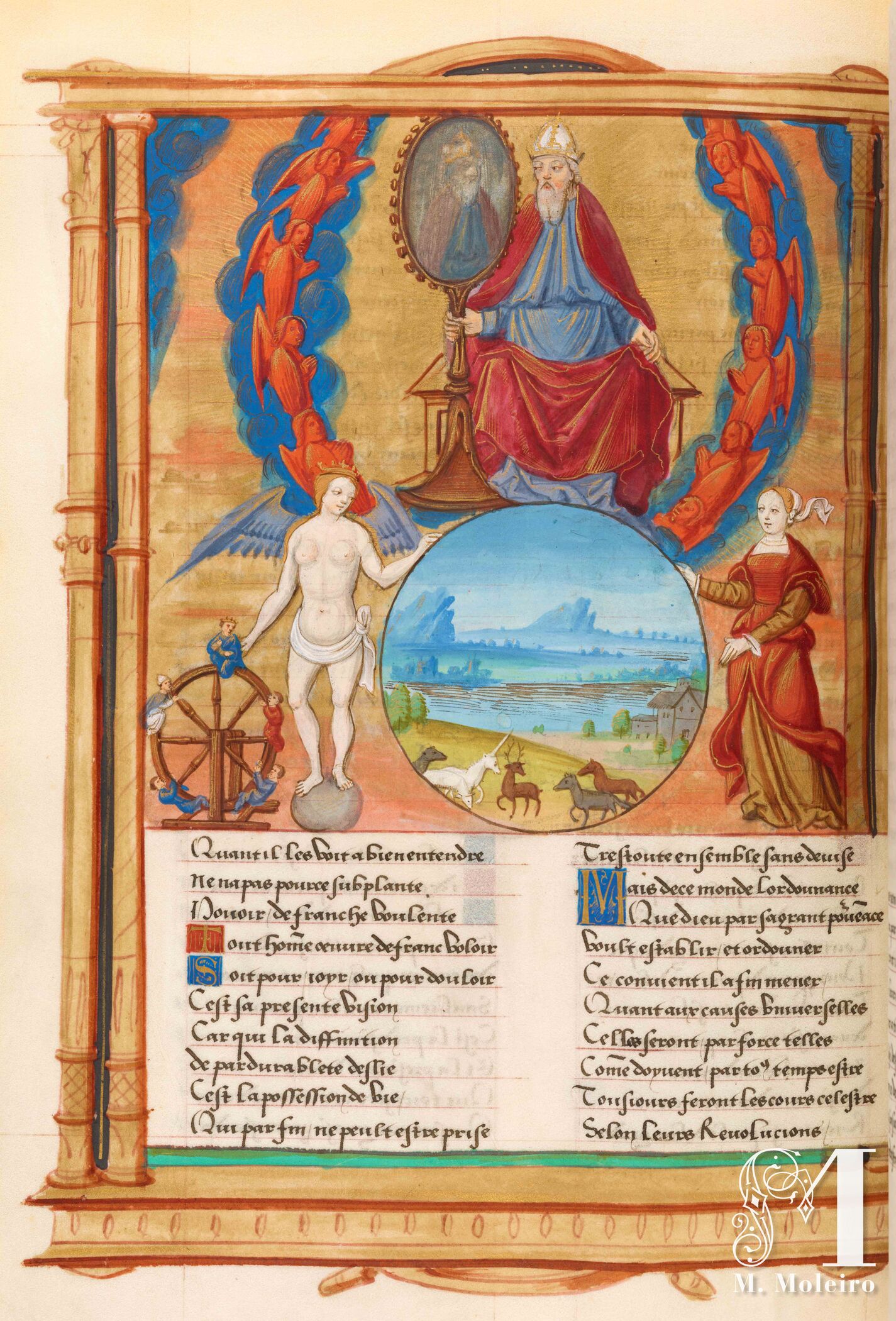In a celestial scene, God the Father is surrounded by angels and holds a large oval mirror reflecting his face. Beside him, Fortune and Nature hold another mirror showing a landscape with horses, a deer, and a unicorn.
Nature expresses concern about God's foreknowledge and human freedom. She compares God's omniscience to a reflection in a mirror, where God sees all actions, past, and future. However, the illustrator adds another mirror in the image, showing the world in its entirety.
Despite the poetic interpretation of the original text, the meaning of the animals depicted in the second mirror remains a mystery without explanation in the context of the Roman de la Rose.
Grace to those who to virtue tend, And yet by that doth not supplant The power of free-will an instant. All people then work through free-will, Either for good or yet for ill, Yet all is His present vision, For if we seek the definition Of eternity, tis possession Of that life, without division, Not to be seen as ever ending | But whole, complete in its being. Now, the ordering of this presence, That God, in his great providence, Created, rules, and doth defend, Must be pursued to its true end As to universal causes; Those perforce must be such causes As valid for all time may prove; The heavenly bodies must move, According to their revolutions, |

In a celestial scene, God the Father is surrounded by angels and holds a large oval mirror reflecting his face. Beside him, Fortune and Nature hold another mirror showing a landscape with horses, a deer, and a unicorn.
Nature expresses concern about God's foreknowledge and human freedom. She compares God's omniscience to a reflection in a mirror, where God sees all actions, past, and future. However, the illustrator adds another mirror in the image, showing the world in its entirety.
Despite the poetic interpretation of the original text, the meaning of the animals depicted in the second mirror remains a mystery without explanation in the context of the Roman de la Rose.
Grace to those who to virtue tend, And yet by that doth not supplant The power of free-will an instant. All people then work through free-will, Either for good or yet for ill, Yet all is His present vision, For if we seek the definition Of eternity, tis possession Of that life, without division, Not to be seen as ever ending | But whole, complete in its being. Now, the ordering of this presence, That God, in his great providence, Created, rules, and doth defend, Must be pursued to its true end As to universal causes; Those perforce must be such causes As valid for all time may prove; The heavenly bodies must move, According to their revolutions, |